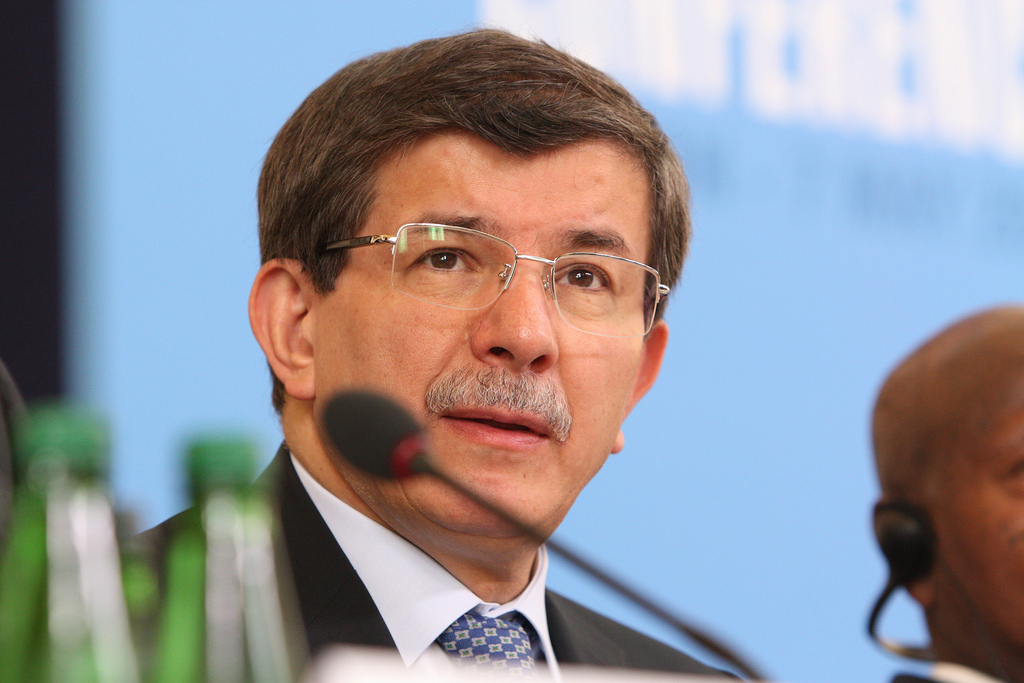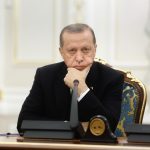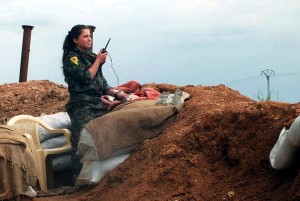by Robert Olson
The recent sacking of Prime Minister Ahmet Davutoglu, coupled with recently passed parliamentary bills and laws, confirms that Turkey is headed for one-man dictatorial rule. This rule will not be similar to dictators or regimes that have come to power through military coups. An Erdogan-led regime would have nearly 50 percent voter approval and be led by a Justice and Development Party (AKP) that, during the past 13 years, has raised the per capita income of Turkey’s citizens 50 percent with a substantial increase in living standards.
The parting of ways between Davutoglu and Erdogan stems from a host of purported differences. For instance, by attempting to shift more power over the choosing of regional and local officials into his own hands, Davutoglu may have been hoping one day to challenge Erdogan’s dominance of the AKP. Davutoglu did not openly disagree with the implementation of the presidential system that Erdogan has been pursuing, but he did not want to see the position of prime minister reduced to a mere figurehead.
Davutoglu was also apparently opposed to the massive witch-hunt against journalists and academics. As a former well-respected professor, he did not want to completely cut himself off from the intellectual and professional classes. According to a recent Press For Freedom report, 894 journalists have been dismissed from their jobs since the beginning of 2016. But Davutoglu’s support for a free press lacked conviction. After all, he readily accepted the sentencing of two well-known journalists and editors, Can Dundar and Erdem Gul, to five years in prison for leaking documents relating to the AKP’s support of weapons shipments to Turkoman militias in Syria and, possibly, to other jihadists forces such as the al-Nusra Front.
Davutoglu supported Turkey’s deal with the EU to limit the flow of Syrian immigrants to EU countries in exchange for Turkish citizens’ right to visa-free travel in Schengen EU countries. Erdogan was less enthusiastic about the deal, which is becoming even more problematic.
There were also reports of differences between the two men regarding the role of the central bank, which Davutoglu wanted to remain independent under the management of technocrats and not AKP sycophants. Some newspapers reported that Erdogan has favored restoring relations with Russia while Davutoglu has been hesitant. Davutoglu reportedly gave orders to shoot down the Russia jet fighter in November 2015.
Differences over the PKK
But the main differences between the two men seemed to be over the strategies and tactics that the AKP and the state should take regarding the Kurdish nationalists movements in Turkey, especially the Kurdistan Workers’ Party (PKK) and its political arm, the Union of Kurdistan Communities (KCK).
Davutoglu seemed to support maintaining some measure of press freedom. In the case of Dundar and Gul regarding espionage charges, however, he readily acquiesced to the verdict, considering their case a national security necessity and part of Turkey’s wars against terrorism, namely the PKK and the People’s Protective Units (YPG), the armed force of the Democratic Union Party (PYD) in northern Syria.
The prime minister also supported the marginalization of Abdullah Ocalan as an interlocutor in the negotiations after 2013 among the state, AKP, PKK, and the People’s Democratic Party (HDP). Davultoglu and Erdogan wanted to reduce the role that the PKK and HDP leadership could play in the negotiations, which would strengthen the position of the state and AKP that the lack of Kurdish concessions was pushing the state into war.
The war came in July 2015 when the AKP’s percentage of votes fell 12 percent, which pushed the party into rallying support among Turkish ultra-nationalists, nationalists, salafists, disaffected, and middle-class Kurds. Davutoglu supported the war because it complied with Turkey’s strategy of destroying the PKK/KCK, removing Kurdish population from the border cities, securing oil and gas lines from the KRG to Turkey, severing ties between the PKK and YPG, and compelling PYD leadership to draw closer to both the Kurdistan Democratic Party (KDP) of Massoud Barzani and the Kurdish Regional Government (KRG). This would strengthen the ties between Turkey, the Kurds of northern Iraq, and the PYD once the Islamic State has been sufficiently reduced as a fighting force. The U.S. and EU have fully backed these policies.
What seemed to trouble Erdogan was that Davutoglu and his supporters did not completely eliminate the PKK as an effective fighting force. The PKK remained in a position to continue the war in the southeast and spread it into the western cities as well. Davutoglu was reluctant to wage full-scale war against the PKK and taking the war more fully into Syria. A major war against Kurds cannot be undertaken with a hesitating prime minister.
The AKP needs only 13 more parliamentary votes to send the country a referendum on a presidential system. The remaining 13 votes can be gained easily from a disintegrating National Action Party (MHP) or defectors from the Republicans People Party (CHP). Lifting the political immunity of HDP and/or MHP deputies would also ensure the success of the referendum. If Erdogan decides on a snap election, and the HDP and/or MHP do not receiving the 10 percent threshold necessary to sit in parliament, the AKP will be well positioned to obtain the 367 seats necessary to create a single-party majority government and write a new constitution.
This is what Erdogan obviously wants. In such a presidential system, strongly supported by the constitution, Erdogan would be in a position to pursue whatever policies he wants against the PKK/KCK, PDY/YPG, and other Kurdish nationalist organizations.
Controlling the MTI
Recognizing this strategy, Kurdish nationalists are eager to create new parties unaffiliated with the PKK/KCK. The National Intelligence Organization will tolerated and even support such parties to give some semblance of legitimacy to the AKP and state’s polices.
In The Daly News, Murat Yetkin describes an even more worrisome development if Erdogan also gets complete control over MIT and its budget:
The “State Intelligence Services and the National Intelligence Organization Law’ numbered 2937 says the undersecretary of the National Intelligence Organization (MIT) is appointed by the president—after it has been discussed by the National Security Board (MGK) and suggested by the prime minister—but directly responsible to the prime minister. Article 7 of the law clearly states that MIT the undersecretary cannot be held responsible for his (or her) actions to anybody but the prime minister. It is the prime minister who oversees and approves (on a yearly basis) the cadres of the intelligence operations and it is only the prime minister who allocates and approves the use of the “covert budget” (article 20) that is used by the MIT undersecretary in intelligence operations while the undersecretary reports to the only the prime minister about the proper use of it (article 21).
When the separate (covert budget) was allocated to the Presidency as a last minute insert in the omnibus law on March 28, 2015, to be used for security purposes. To have full control over military and intelligence, like the president of the U.S., seems to be a motivating factory in Erdogan’s target of shifting to a presidential model system with more executive powers, while criticizing the strong checks-and-balances in the U.S. system.
Because Turkey is a strategic ally in the “War on Terror,” the US and EU will likely acquiesce to Erdogan’s power grab. Davutoglu may have resigned just in time.
Photo: Ahmet Davutoglu






Very illuminating (and troubling) political analysis. However, whether or not the AKP is still popular because it was responsible, or at credited for raising the standard of living of Turkish citizens (though one wonders which groups may have benefitted most, and which may not have benefitted), the Turkish economy is now weak as a direct result of Erdogan’s policies, which are more and more being developed on the fly, and, the economy is almost ready to go into free fall. Furthermore, the international community is slowly beginning to align itself against Turkey on a number of fronts. So remembrance of good things past could be short.
My guess is that Erdogan will tighten the noose, but at some point find that it is around his own neck, and that scatological poems are the least of his worries.
From “no troubles with the neighbours” to trouble with just about everybody. And Turkey is still a NATO member — which means that the other members will have to come to Turkey’s defense, if one of those troublesome neighbours decides to attack it. Looks as if Washington and the Brits would be at the head of that defense.